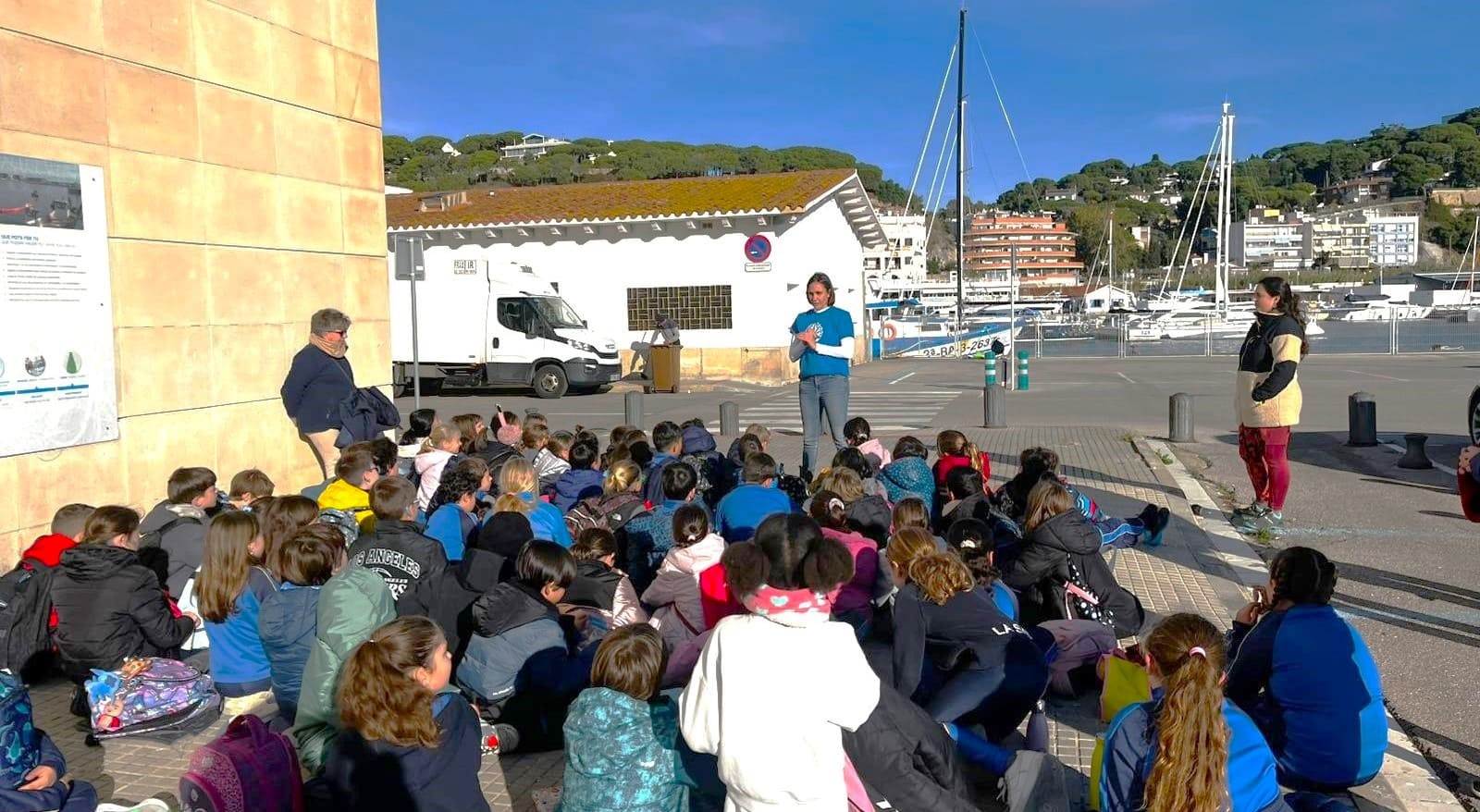He LIFE ECOREST programme It is promoted by MITECO’s Biodiversity Foundation and coordinated by the Institute of Marine Sciences (ICM-CSIC). It is developed in the coastal towns of Girona and Barcelona.
A total of 452 students from secondary, secondary and upper primary schools from Girona and Barcelona participated in the environmental education program of the LIFE ECOREST project aimed at raising awareness in the educational community about the natural values of deep-sea habitats and the importance of marine restoration.
LIFE ECOREST programme
This program, that started in Octoberis promoted by the Biodiversity Foundation of the Ministry for the Ecological Transition and the Democratic Challenge (MITECO) in coordination with the rest of the project partners, coordinated by the Institute of Marine Sciences (ICM-CSIC).

Loose 8 centers that carried out the activities They are located in the coastal towns of Figueres, Llançà, Castelló d’Empúries, Cadaqués, Roses, Vilanova i la Geltrú, Barcelona and Premià de Mar. The educational program included a training guide for teachers and students, as well as activities, games and other resources that guided the development and implementation of the guide’s content.
Both students and teachers have shown great interest in the topics covered, focusing on the actions that the LIFE ECOREST project is developing in these areasand also on the benefits of marine restoration, as well as on the importance of deep-sea habitats, especially sessile organisms, such as corals, gorgonians, sponges and bryozoans.

The role of the fishing sector in the project and marine recovery has also been highlighted, while at the same time the active participation of students in classroom activitieswhere he has shown a high level of commitment. In addition, thanks to the collaboration of the fishermen’s guilds, the students have been able to visit the aquariums installed in the guilds of Port de la Selva, Arenys de Mar, Llançà, Vilanova i la Geltrú and Roses, where organisms accidentally caught are recovered the subsequent return to the sea. The last visit took place today at the Arenys de Mar brotherhood, in Barcelona.
The education program will continue in 2025 with the aim of continuing to educate and raise awareness among teachers, schoolchildren and citizens of the provinces of Girona and Barcelona. Educational resources and materials are available at LIFE ECOREST project website for all interested centers.
Deep habitat restoration
The LIFE ECOREST project is progressing with the aim of restoring almost 30,000 hectares of deep-sea habitats in Catalonia with the active participation of the fishing sector. In addition to research and conservation actions, participatory management of fishermen included in the project is also promoted, strengthening governance mechanisms and raising public awareness of the importance of conserving deep-sea habitats.
This initiative, which coordinates the Institute of Marine Sciences (ICM-CSIC) until 2026has as partners the Territorial Federation of Fishermen’s Associations of Girona, the Biodiversity Foundation of the Ministry for the Ecological Transition and the Demographic Challenge, the University of Barcelona and WWF Spain, as well as the financial contribution of the LIFE program of the European Union. The brotherhoods of Llançà, Port de la Selva, Cadaqués, Roses, Palamós, Sant Feliu de Guíxols, Blanes, Arenys de Mar and Vilanova i la Geltrú collaborate in the project.
The students have shown great interest and commitment, both in classroom activities and in visits to the brotherhoods participating in the project, which house aquariums with species of corals, gorgonians, sponges and bryozoans. used in seabed restoration.

